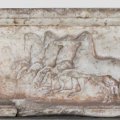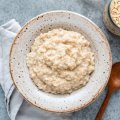Australian scientists have had a rare opportunity to learn about the future of biomedicine when Nobel Laureate Professor Robert Huber visited Brisbane recently.
Professor Huber, a world-renowned leader and pioneer in the field of protein crystallography, visited The University of Queensland on April 4 to give a public lecture and meet with scientists about future collaborations in the area of biochemistry.
Click here to listen to Professor Huber's lecture.
Crystallography allows scientists to see molecules in atomic level detail which can help design drugs to block disease-causing proteins.
Professor Huber is the Director Emeritus at the Max Planck Institute of Biochemistry near Munich in Germany.
His public lecture on Proteins and their structures: from basic science to biomedicine, was held in the Queensland Bioscience Precinct.
He presented the studies that earned him the Nobel Prize for Chemistry in 1988 and discussed the future of protein crystallography to reduce several diseases such as influenza and cancer.
Global science and research-based company Bayer sponsored the visit as part of the company’s commitment to developing innovative solutions to Australia’s health and agricultural issues.
“Bayer is particularly excited to be involved in Professor Huber’s visit given our current research and development projects in areas such as biotechnology and our commitment to innovation,” Bayer Managing Director Sam Howard said before the lecture.
“His presentation is an absolute must for biochemical students, researchers and enthusiasts."
Professor Huber’s visit to Brisbane was part of German Weeks 2006, a two-month celebration of modern Germany featuring business, science, technology, political, cultural, musical and sports events in Brisbane orgnaised by the German Consulate-General in Sydney.
Visit www.moderngermany.com for more details.
MEDIA: Contact Margaret Cochran on (0407 021 699) or Miguel Holland at UQ Communications (3365 2619)
.jpg)



